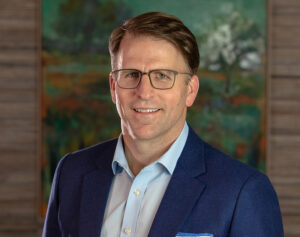The Malin’s Design-Centric Approach to Flexible Workspaces
What started in 2019 as a members-only club has now grown into a network of flexible workspaces that aim to challenge traditional office settings. The Malin’s approach centers around the power of design, combining luxury fabrics with handcrafted furniture to create hubs that provide experiences tailored to their surroundings.
Founded in New York City’s SoHo neighborhood, the flex workspace operator has steadily expanded its portfolio to eight locations across four states. Most of them are in historical buildings, on iconic streets or in popular neighborhoods. This type of spaces appeal to modern workers who want flexible, productive and creative work environments in the most sought-after parts of cities.
In this interview with Commercial Property Executive, The Malin Founder & CEO Ciarán McGuigan explores how a growing emphasis on both design and community building is shaping the future of flexible workspaces.
READ ALSO: When Coworking Meets Hospitality: A New Jersey Success Story
What makes you different? What elements have you introduced at your locations to set yourself apart from competition?
McGuigan: We are a hospitality brand first and foremost. Members have access to our onsite team that performs complimentary concierge and administrative services at each location. We have a reputation for remembering names, coffee orders and helping our members accomplish their best work. In addition, we pride ourselves on offering a strong balance of form and function. We design and manufacture our furnishings inhouse and our workspaces are known to be remarkably quiet.
With design at the forefront of your strategy, what are some trends in workspace design, especially when it comes to supporting productivity and well-being in the office?
McGuigan: There has been an injection of residential tropes into workspace furnishings over the past decade, which does not seem to be slowing down, mirroring the progressive informality of office culture. We make a point to balance this with structured seating—like private desks, communal work seating and conference tables with built-in power.
As hybrid work became more prevalent, both pre- and postpandemic, we’ve seen a rise in flexible workspace design—providing adaptive spaces and offering a range of environments that support different work models. Lastly, aesthetics are more important than ever and to be a competitive employer, providing an environment that inspires can give businesses the edge.
Tell us more about your design process for your locations.
McGuigan: There is a unifying design aesthetic across all of our workspaces but we individualize each by drawing inspiration from the architecture of the site and its local community. With our newest Nashville, Tenn., location in South Gulch, for example, the design is partly informed by the vibrant, creative and musical scene in the city, exhibited through graphic patterns and bold colors throughout. Each Malin provides the escape one feels from settling into a beautiful lobby at a boutique hotel but does not sacrifice the essential qualities that support work.
READ ALSO: Trends in Remote Work
What are some amenities available at your flexible workspaces?
McGuigan: We offer an executive assistant service, which manages day-to-day factors that may be distractions during a typical workday, like dry cleaning and travel coordination, as well as basic administrative needs, like mailings and note-taking.
We have a high demand from members and nonmembers alike who are seeking impressive and high-tech spaces to anchor both internal and external meetings. Lastly, each venue has at least one library and a silent space for work, but we also offer banquets that engender collaboration and synchronistic dialogues. There is something for everyone.
How do you ensure that each Malin location maintains its unique character while adhering to the brand’s overall design philosophy? How do you achieve balance?
McGuigan: There are core design tenets that unite each club, like custom oak millwork, crystal desk dividers and plush warm furnishings. We want to uplift our members’ spirits when they come to The Malin, a workplace that feels like a retreat. Our model allows for a wide variation in the types of spaces we consider—both ground-up builds in emerging neighborhoods, as well as historic structures in established districts. With that comes the opportunity to tailor our design to the needs of the building and community. Through this process, each venue in our network takes on its own personality. Everything we do is custom, which provides us with incredible freedom.
How do you select new locations for The Malin?
McGuigan: In the development of new sites, we seek out the most desirable neighborhoods and buildings, in what we see are the most exciting cities in the U.S. Our brand is a neighborhood amenity, servicing the local community. With that, we can ‘placemake’ or revitalize within those given markets, so new locations respond to those distinct opportunities.
Do you have any initiatives or programs aimed at community building?
McGuigan: Rather than contriving programs to create a template for community building, The Malin is showing up for members on their terms. Our members are like-minded businesspeople looking for a common space to do their best work. Over time, this has built an organic and authentic professional network that mostly fosters community.
READ ALSO: Where Branding, Franchising Meet in Coworking
Tell us more about the type of tenants that choose your flexible workspaces.
McGuigan: The Malin members are leaders and decision-makers across industries on a local and international scale. Since our model offers flexibility that can cater to all different career paths, our non-vetted member base represents a varied group of professions. Our members range from individual workers and small teams to larger companies. We’re the workspace for everyone, from consultants and advising services, specialized creatives and designers, to VC firms and tech startups.
Are you targeting any new markets to expand your footprint?
McGuigan: We’re constantly evaluating new markets for The Malin, both nationally and globally, and especially in secondary cities. We recognize there is a huge gap for premium workspaces outside of the major hubs, and so we want to continue bringing our brand to burgeoning neighborhoods where we can best support small and growing businesses by providing an aspirational environment for them to do their very best work.
The post The Malin’s Design-Centric Approach to Flexible Workspaces appeared first on Commercial Property Executive.




